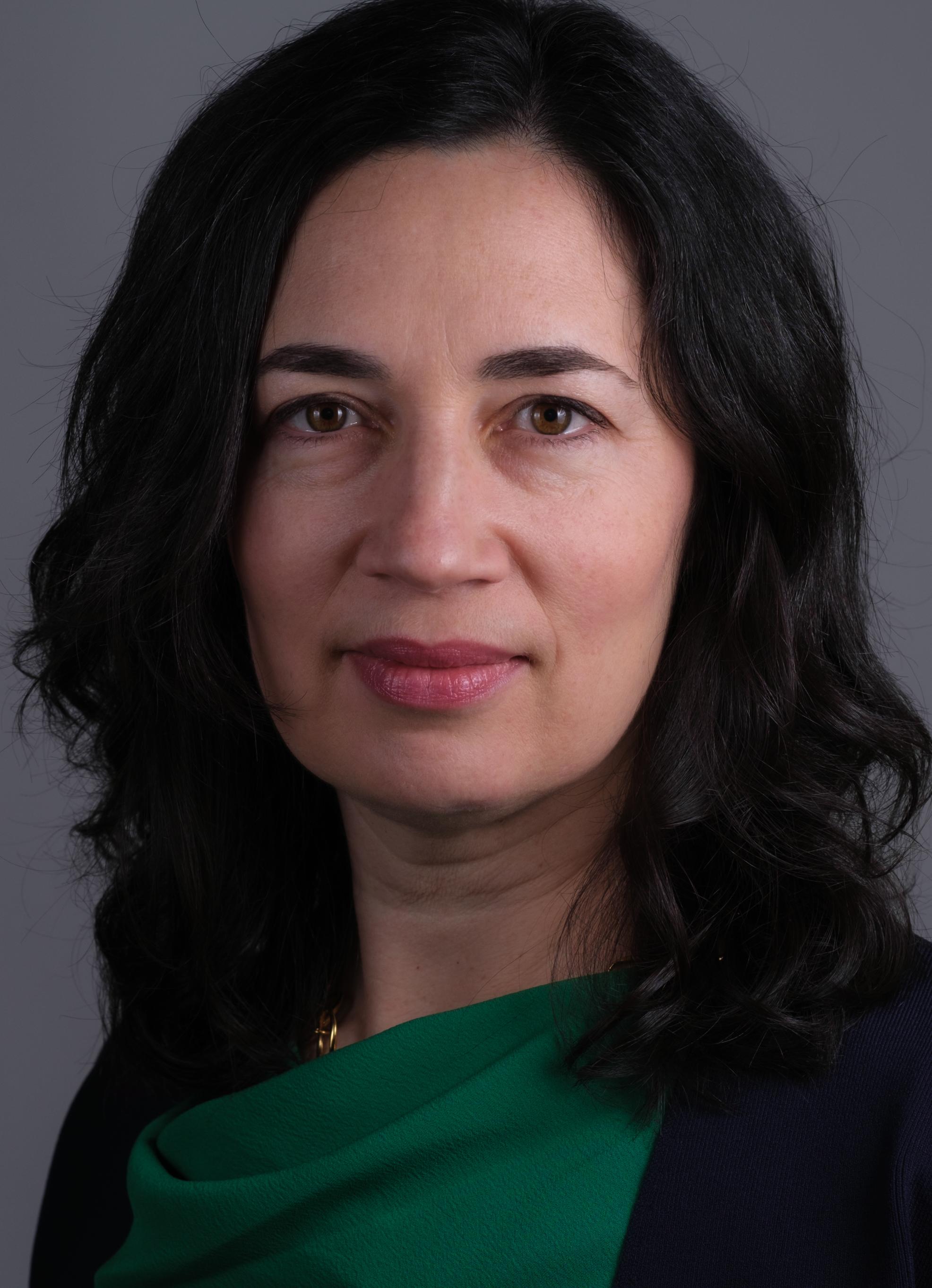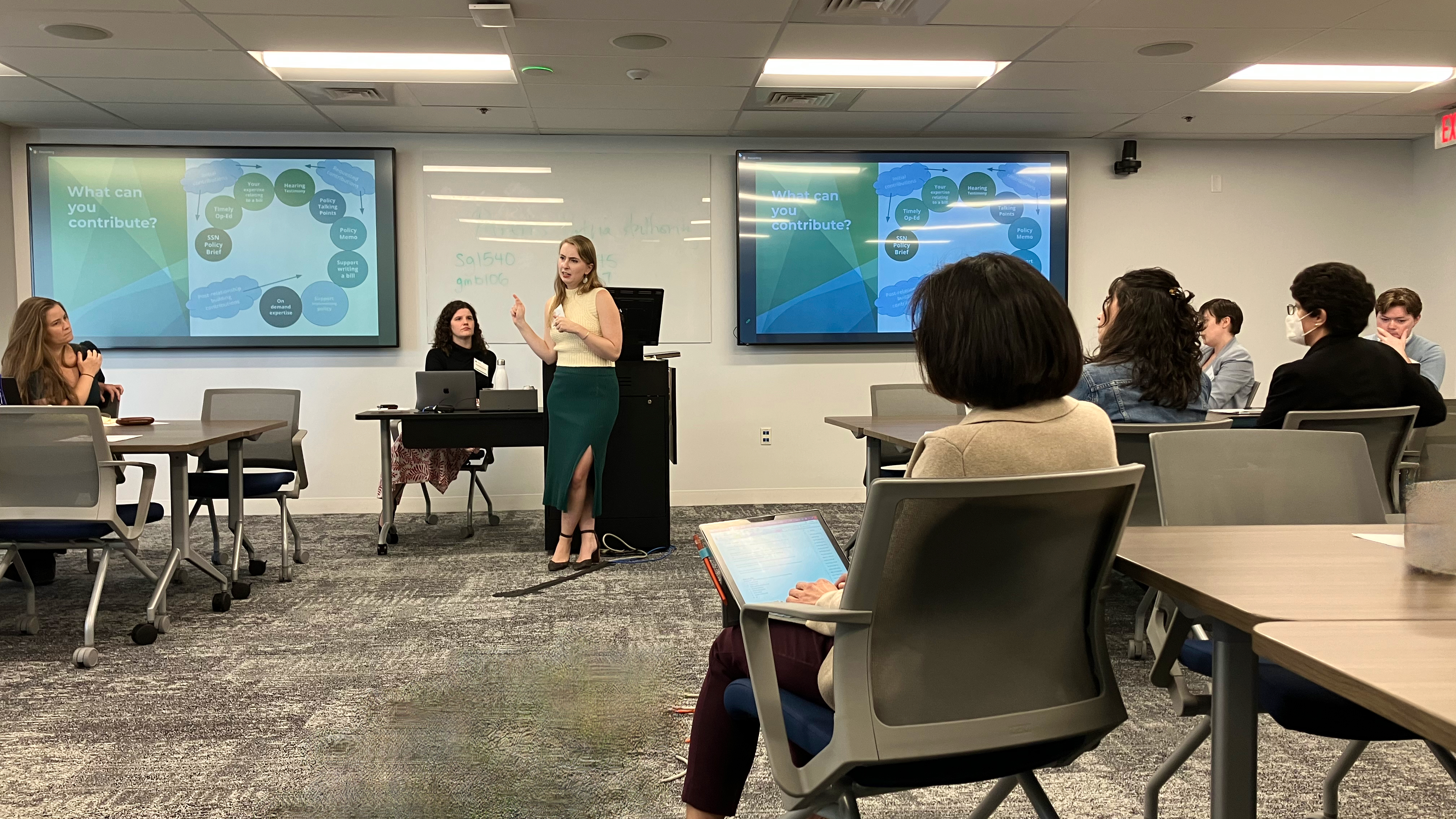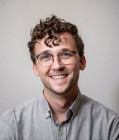Maryland-Washington D.C. Chapter Launches to Connect Researchers to Local and State Policy

For many researchers living in the D.C.-area, the connection between their work and public policy is extremely clear. Just steps from the halls of Congress where policy is made or the offices of countless federal agencies that implement our nation’s laws, the opportunities to engage at the federal level are bountiful. But when it comes to local policy in D.C., or even state policy in Maryland, there is often a sudden drop off of resources and information. That is precisely what Professor Nora Gordon of Georgetown University noticed and set out to change this year by helping to co-found a Maryland-Washington, D.C. SSN chapter together with Jaime Alison Lee from the University of Baltimore and Elizabeth Rigby from The George Washington University.
“I’ve been at Georgetown since 2010, living first in DC and then here in Montgomery County in Maryland for the last eight years. I’ve found it much easier as a scholar to get linked in with federal policy and national level advocacy. That’s in part because I do a lot of research on federal education policy—but state and local policy are critical for implementation. I realized I don't even know who to talk to about stuff going on in my own state or county, and I want to be talking to them,” said Gordon. “There’s almost a barrier to entry of just knowing what’s going on. There are a lot of people who I think would like to be involved in that type of policy, if we could just make it easier for them to enter, so that really motivated me.”
To get the chapter started on the right foot, Gordon set out to find co-leaders who could help her organize academics in the area. Through personal and professional connections, Lee and Rigby joined the leadership team. Lee has long worked in the organizing space, serving as the Director for the Community Development Clinic at the University of Baltimore which offers free, non-litigation legal services to Baltimore-area community development organizations. Rigby’s research meanwhile examines the politics of inequality and redistribution, often with a focus on local and state policy.
Together the group organized a dinner with around a dozen fellow academics in the area who had expressed interest in getting more involved in this type of policy work. At the dinner, an organizer for Jews United for Justice (JUFJ), a Jewish advocacy organization in the area that Gordon was previously involved with, spoke to the group about the many issues at play in local and state policy. “He was really motivating. Especially when you're thinking about federal policy, it can feel like things don't change,” said Gordon. “So it was great hearing him talk about policy wins and also thinking about more granular advocacy for regulation and implementation, that’s a real interest among many of our members.”
“People want more impact with less work,” added Rigby. “They want to be more strategic, so ‘More impact, less work’ is now our tagline!”
Building on this momentum, the chapter leaders organized an ambitious, in-person launch event in October. Bringing together dozens of scholars from institutions throughout the D.C. area, the event focused on presenting researchers with information about how to get involved through SSN, updates on policy opportunities in D.C. and Maryland from JUFJ organizers, and a policy workshop facilitated by SSN national staff to prepare them to engage. Recognizing the importance of in-person connections, the event involved a networking lunch where researchers met based on their areas of expertise to build connections across institutions.

With over 70 members in the chapter, Gordon is looking forward to helping researchers organize on a broad range of issues, while gaining the knowledge and connections to move beyond federal policy. The chapter has already started gathering information about the connections their members hold and is planning to provide additional workshops and opportunities for in-person gatherings throughout the year. “The range of interests is kind of mind boggling to me and really cool,” said Gordon. “We’re excited about organizing trainings and especially about doing this kind of matchmaking, connecting people to get involved at the state and local level on all of these various topics.”
Learn more about the Maryland-Washington, D.C. chapter here.
